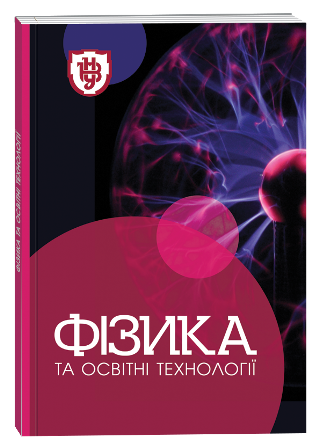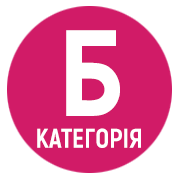МЕТОДИЧНІ АСПЕКТИ РОЗВИТКУ ПРОФЕСІЙНИХ КОМПЕТЕНТНОСТЕЙ СТУДЕНТІВ ЗАСОБАМИ РОЗВ’ЯЗУВАННЯ ЗАДАЧ З ФІЗИКИ
DOI:
https://doi.org/10.32782/pet-2025-1-4Ключові слова:
професійна компетентність, критичне мислення, розв’язування задачАнотація
Одним із важливих засобів розвитку мисленнєвих і творчих здібностей здобувачів освіти є розв’язання задач, які сприяють глибшому засвоєнню курсу фізики – базового для вивчення спеціальних освітніх компонент. Фізична задача, як елемент освітнього процесу, є найефективнішою формою самостійного поглиблення знань та закріплення теоретичного матеріалу. У ході розв’язання задач задіюються всі основні мисленнєві операції, такі як абстрагування, аналіз, дедукція, узагальнення, порівняння та синтез. Варто зазначити, що більшість здобувачів освіти першого курсу стикаються з труднощами під час розв’язування задач. Це пов’язано з тим, що вони часто формально запам’ятовують закони, визначення, поняття й формули, не розуміючи особливостей умов та меж їх застосування. У результаті ці знання неправильно або некоректно використовуються в конкретних фізичних ситуаціях.У сучасних умовах процес навчання фізики у вищому навчальному закладі являє собою складну задачу, оскільки багато здобувачів освіти не підготовлені до засвоєння нової інформації. Вони не уміють відповідати на запитання, пояснювати спостережувані явища, працювати з приладами, не знають фундаментальних фізичних законів і т.д. У зв’язку з цим виникає роль викладача, який повинен створити умови для розвитку творчості, пізнавальних інтересів, інтелектуальних здібностей студентів, спираючись на гуманізацію, диференціацію та індивідуалізацію навчання.Для підготовки компетентного спеціаліста, конкурентоспроможного, такого, що має експериментальні вміння і навички, здатний оперувати сучасною термінологією та новітніми досягненнями, науковими поняттями, законами, концепціями, вченнями і теоріями природничих наук, необхідно забезпечити високий рівень фундаментальної підготовки як основи професійних компетентностей. Розв’язання фізичних задач є елементом у формуванні таких навичків. Цей процес допомагає засвоєнню не лише теоретичних знань, але й розвитку практичних навичок, критичного мислення та вміння відновити знання в реальних умовах (Бургун, 2016).
Посилання
Яцура М. М., Гамарник А. М., Рачій Б. І. Методика проведення практичних занять з фізики зі студентами фізичних спеціальностей при кредитно-модульній системі організації навчання. Фізико-математична освіта. 2021. Вип. 1(27). С. 112–118.
Герасимова К. В., Ткаченко Г. І. Практичні заняття з фізики із залученням демонстрацій у закладах вищої освіти. Фізико-математична освіта. 2021. Вип. 4(30). С. 29–33.
Бургун І. В. Класифікація фізичних задач в контексті компетентнісної освіти. Наукові записки. Серія : Проблеми методики фізико-математичної і технологічної освіти. 2016. Вип. 10, Ч. ІІІ. С. 35–38.
Войтків Г. В. Компетентнісні задачі з фізики. Фізика. Технології навчання. Зб. наук. пр. студентів і молодих науковців. М. Кіровоград, 2016. В. 14. С. 45–50.
Макаренко О. В., Макаренко К. С., Макаренко В. І., Матяш Л.О., Сілкова О. В. Методика складання задач з медичної і біологічної фізики в контексті сучасних педагогічних технологій. Фізико-математична освіта. 2020. Вип. 4(26). С. 67–71.
Кевшин А., Галян В., Третяк А., Артюх Ю., Шафарчук В., Никифоров О., Куршель Д. Використання практичних та лабораторних занять під час вивчення складних лінійних електричних кіл постійного струму в курсі електротехніки. Фізика та освітні технології. 2022. № 1. С. 27–33.
Кевшин А., Галян В., Остапюк В., Димарчук В., Середа, Д. Особливості використання панелі «Лінійні електричні кола» стенду «Електротехніка. Основи електроніки УТЛЕ-01» для експериментальної перевірки принципу накладання струмів. Фізика та освітні технології. 2023. № 2. С. 13–19.








